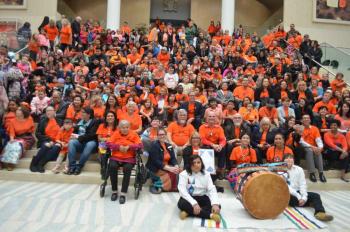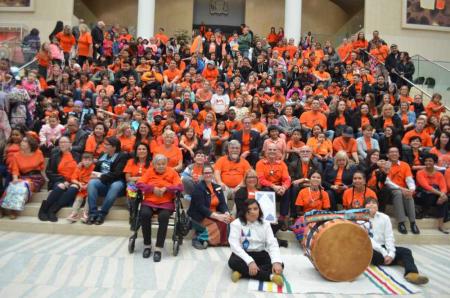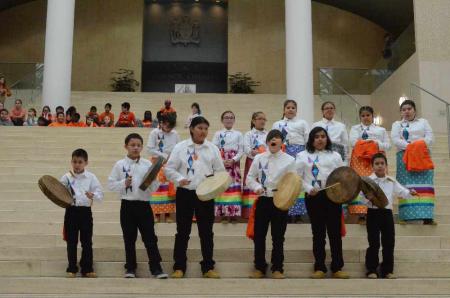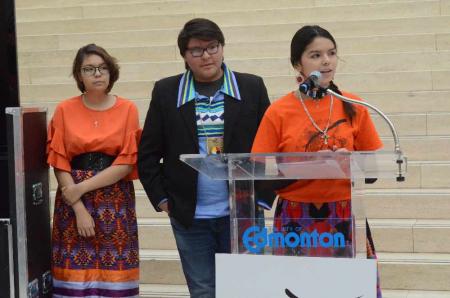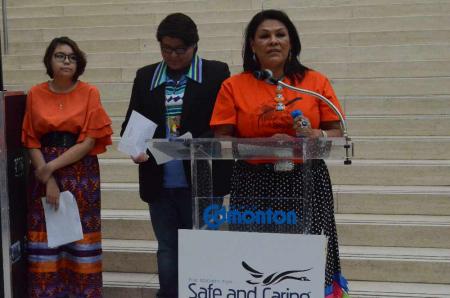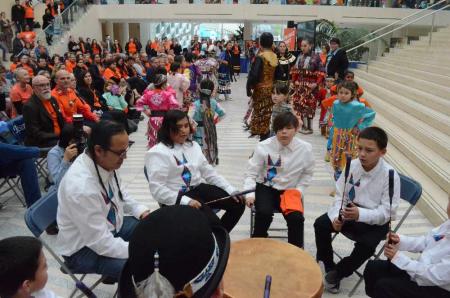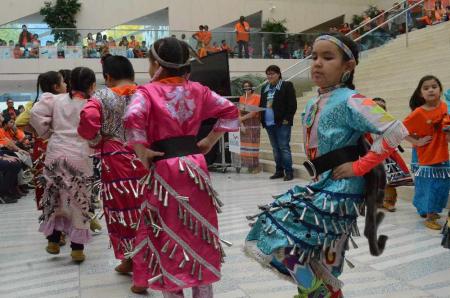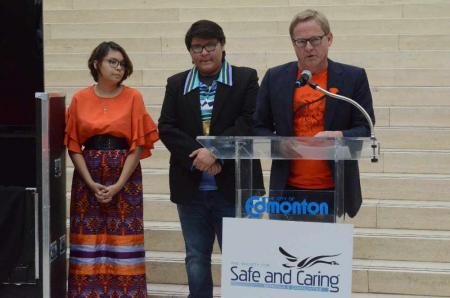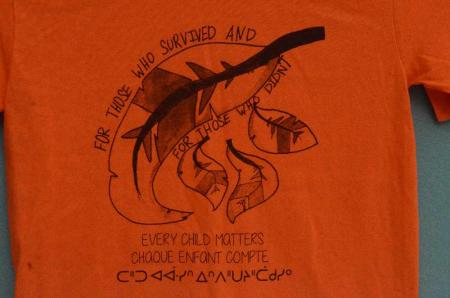Summary
{ALBUM_998762}
By Paula E. Kirman
Windspeaker.com Contributor
Edmonton's City Hall was filled with hundreds of people of all ages wearing orange shirts on Sept. 28. Although Orange Shirt Day is officially Sept. 30, that date fell on a Sunday so the public commemoration was held a couple of days earlier to allow for schoolchildren from across the city to attend.
Assembly of First Nations Alberta Regional Chief Marlene Poitras called for people “to take action and stop the inequalities, injustice, and atrocities perpetuated against Indigenous people.”
“As Canadians, we all have a responsibility to learn about Canada's true history,” said Poitras. “That is what today is all about: raising awareness, and sometimes the truth hurts.”
Edmonton's event was organized by The Society for Safe and Caring Schools and Communities. Orange Shirt Day honors the memories of Indigenous children who did not survive residential schools, as well as the experiences of the survivors.
It is a growing movement that is part of the reconciliation process, growing out of the account of Phyllis Webstad, former student of the St. Joseph Mission residential school, who recalled having her brand-new orange shirt taken away on her first day of school.
A commitment to the principle that every child matters, the September date was chosen due to it being the time of year when children were taken from their homes to the residential schools. As well, being early in the school year, it is a time to set the tone in schools for anti-racism and anti-bullying policies.
Artwork for this year's Orange Shirt Day t-shirt was chosen via a province-wide competition. The winning design was created by Sophie St. Cyr, a student in Calgary.
“Reconciliation starts with awareness and understanding and is advanced through education and through action,” said Minister of Education David Eggen.
Shaunteya Dase English Eaglechild, a 16-year-old Grade 11 student from the Kainai and Piikani nations in southern Alberta, spoke as an intergenerational survivor.
She reflected on the conflicts in her identity. “I came to a point of confusion. I was confused as to who I was. I knew my name and reserves I came from, but had to ask myself what that even meant.”
Upon researching her background, Eaglechild learned about the impact residential schools had on family members, and how it affected things like parenting and spirituality. “Residential schools left a huge tear on our traditional ways,” she said.
In addition to the speakers, which included representatives from all levels of government, students from Ben Calf Robe performed a program of dance, singing, and drumming and Amanda Woodward and her children played flutes.
Pointing out that Indigenous people are often told to “get over it” when it comes to talking about the intergenerational trauma caused by residential schools, Poitras said, “I will get over it when First Nations children and families are treated fairly, where they can have the same opportunities to be educated, healthy and live productive lives. I will get over it when our daughters and sons no longer have to fear for their safety and where our Indigenous men and women no longer go missing or are murdered at alarming rates. I will get over it when the families and loved ones of thousands and thousands of missing Indigenous women and girls finally have justice.”

